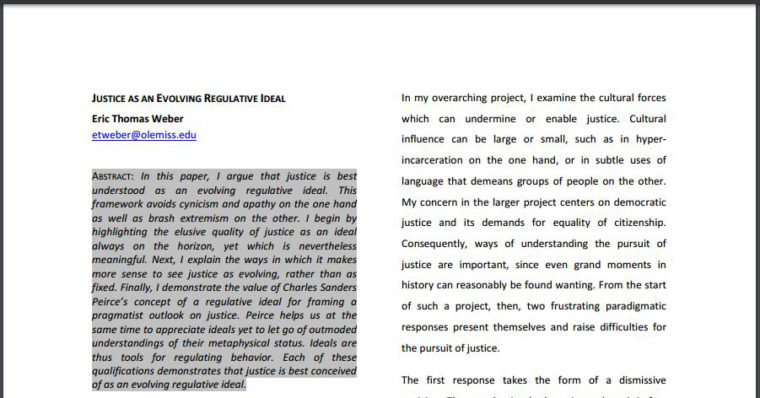
Title: “Justice as an Evolving Regulative Ideal.”
Abstract:
In this paper, I argue that justice is best understood as an evolving regulative ideal. This framework avoids cynicism and apathy on the one hand as well as brash extremism on the other. I begin by highlighting the elusive quality of justice as an ideal always on the horizon, yet which is nevertheless meaningful. Next, I explain the ways in which it makes more sense to see justice as evolving, rather than as fixed. Finally, I demonstrate the value of Charles Sanders Peirce’s concept of a regulative ideal for framing a pragmatist outlook on justice. Peirce helps us at the same time to appreciate ideals yet to let go of outmoded understandings of their metaphysical status. Ideals are thus tools for regulating behavior. Each of these qualifications demonstrates that justice is best conceived of as an evolving regulative ideal.






 About Me
About Me